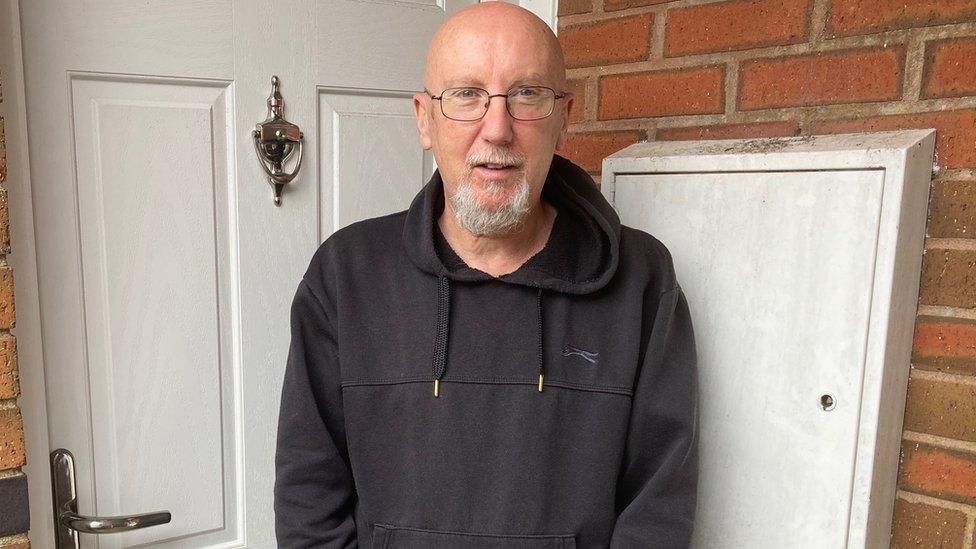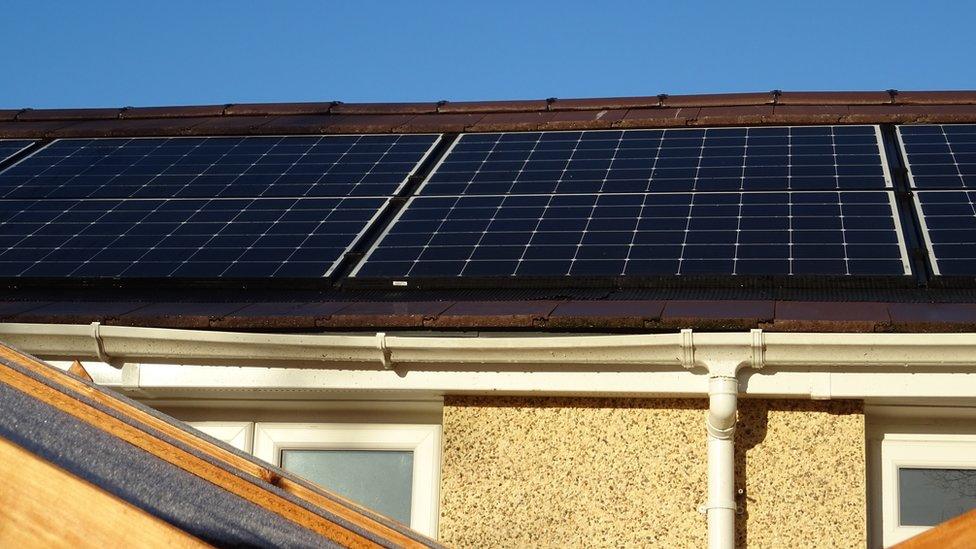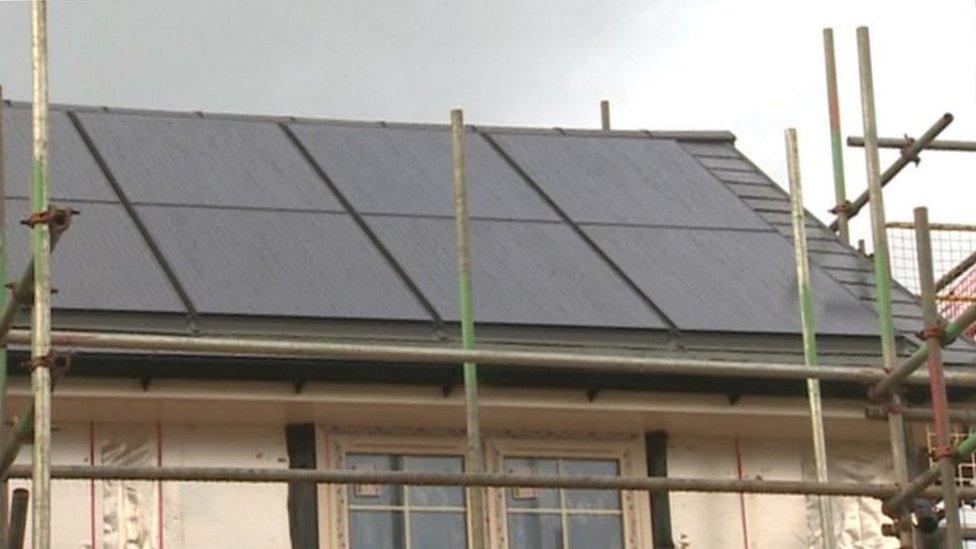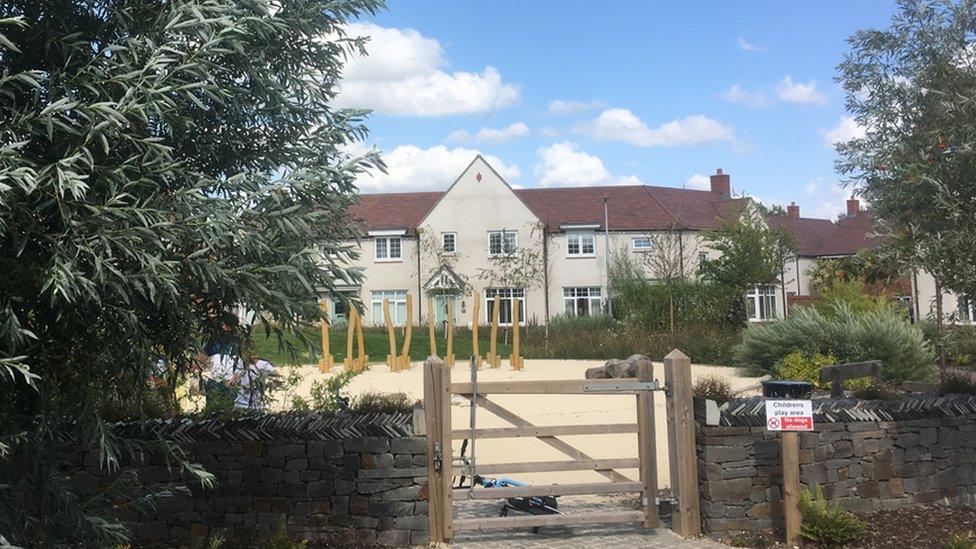Renewable energy: Swansea homes retrofitted with smart tech
- Published

Smart phone apps allow people to monitor the energy consumption in their homes
Work is set to begin on one of the UK's largest energy retrofit projects of its kind.
The scheme will see almost 650 existing homes in Penderi, Swansea, installed with energy storage and smart energy management technology.
Social housing provider Pobl is behind the project, which is backed by £3.5m in European Union funding.
Housing Minister Julie James hailed it as "transformational".
It is hoped the upgrades will allow the homes to generate up to 60% of their own electricity, reducing bills and carbon emissions by as much 350 tonnes per year.

Brian Mcallen said there had to be an incentive for people to use solar power
'A real eye-opener'
Local resident Brian Mcallen took part in a smart energy pilot scheme and welcomed news of the roll-out to the wider community.
"It allows people to really see how green energy works and how much money they can save to use elsewhere. It can be a real eye-opener," he said.
Individual or communal batteries will be installed for the homes, allowing them to harness power generated via linked solar panels.
Every home will also be fitted with a new smart thermostat and intelligent heating control, managed through an app.
Work will begin in the new year.
"Fuel prices and climate change are two sides of the same crisis, with people in Wales still among the most fuel-poor in the UK," said Solitaire Pritchard, Pobl's head of regeneration.
"We are committed to identifying new ways of making homes more environmentally and financially sustainable - and that includes our existing homes as well as our new developments."
There would need to be 50,000 homes transformed a year until 2050, experts say
The project has been delivered in collaboration with renewable energy supplier Sero.
Lessons learned it from will inform the wider roll-out of renewable energy technology in thousands of homes throughout the Swansea Bay City Region, as part of the £1.3bn City Deal, in the Homes as Power Stations project - subject to UK and Welsh Government approval.
This would see energy efficiency technology retrofitted to 7,000 homes with a further 3,300 new build homes also benefiting as part of the project, which is led by Neath Port Talbot council.
In July, housing bodies called for thousands of existing homes in Wales to be retro-fitted with energy-saving improvements to create jobs as part of the economic recovery from coronavirus.
- Published21 July 2020

- Published20 January 2020

- Published7 August 2019
